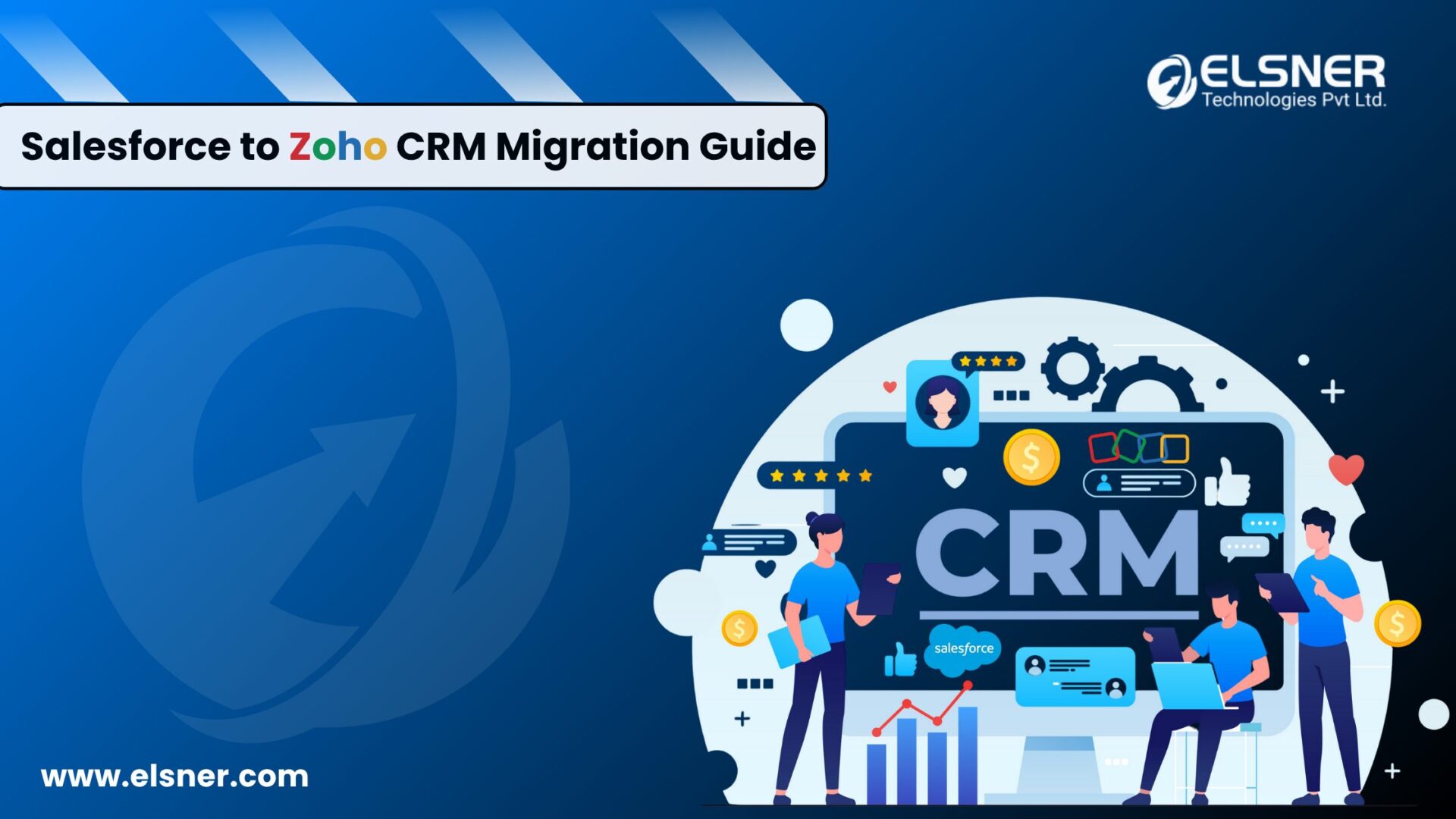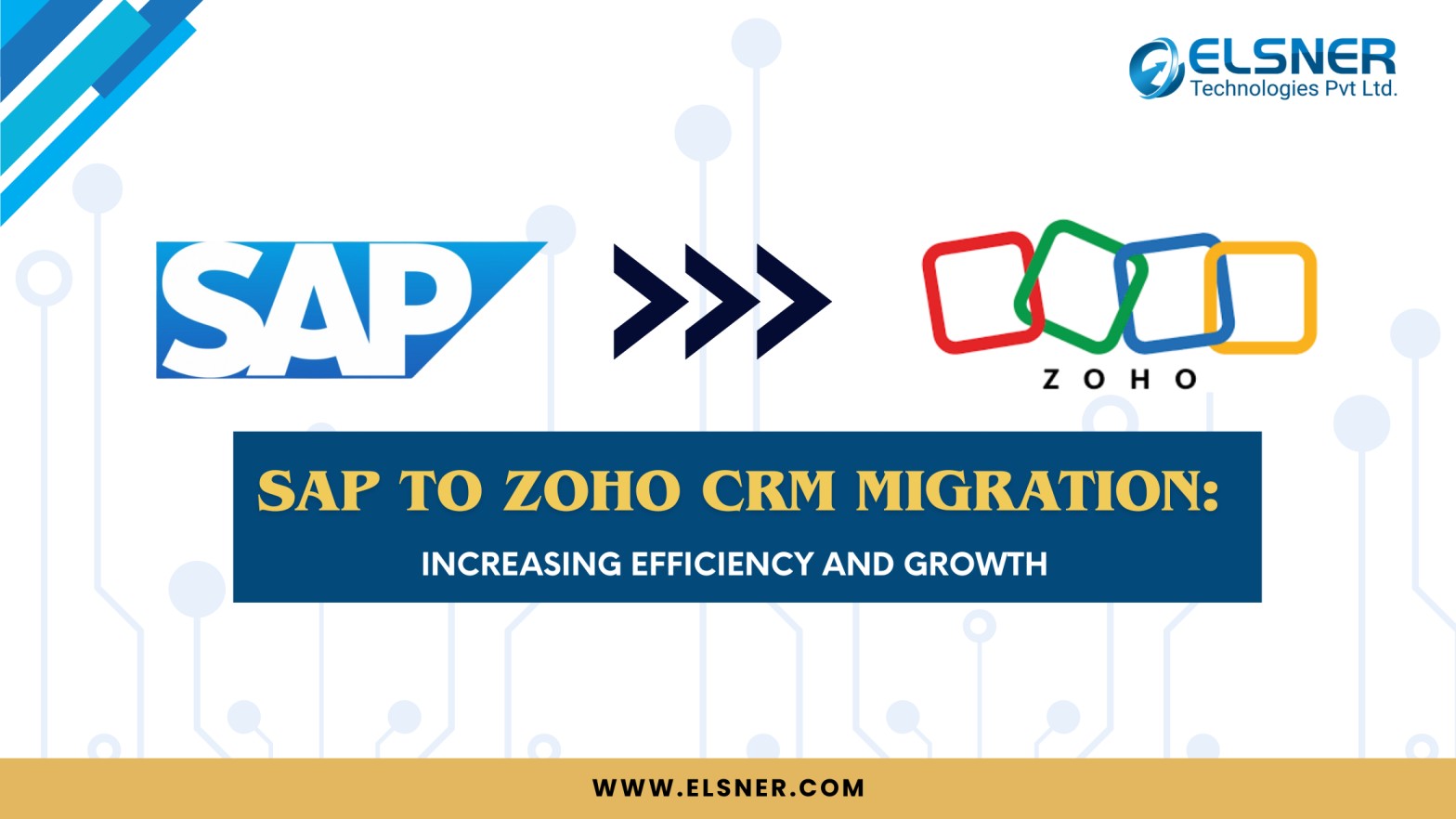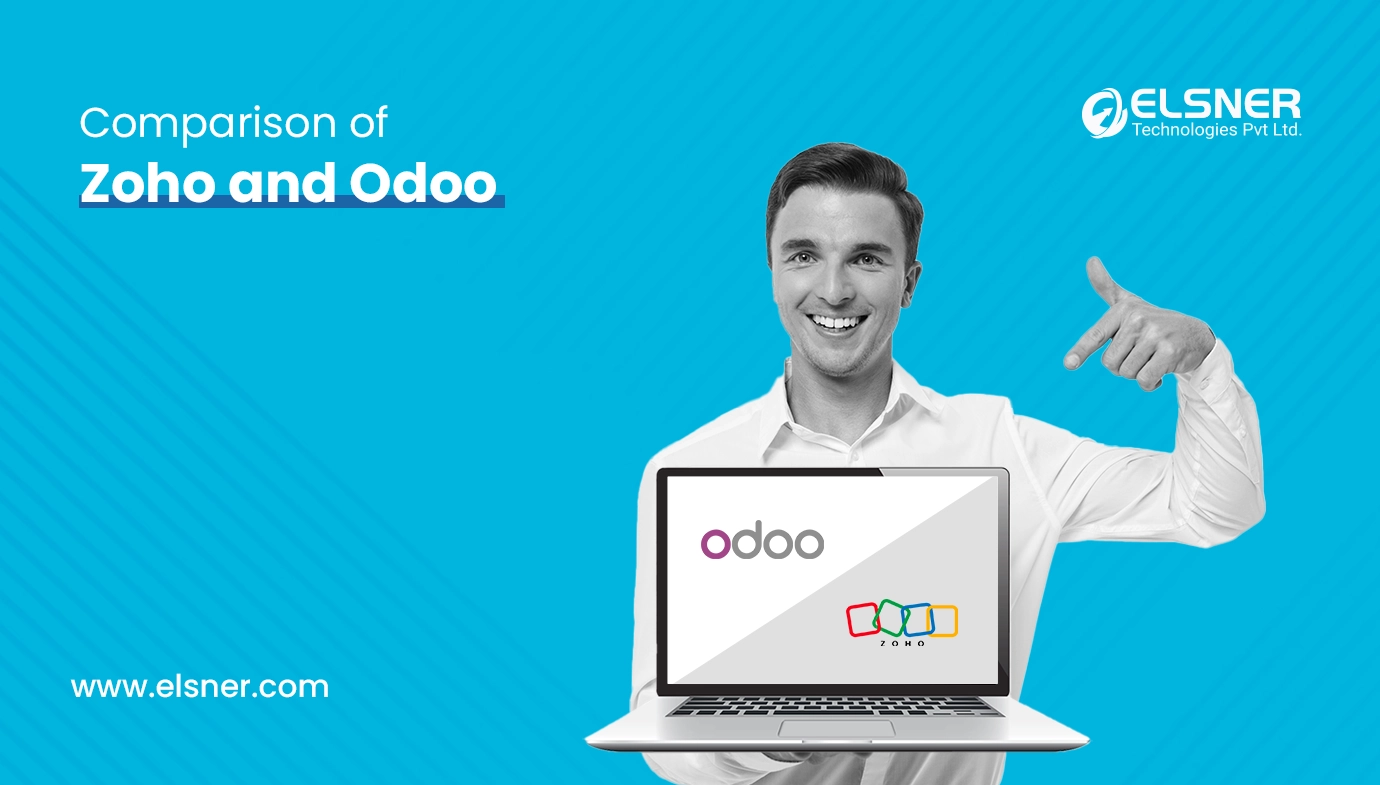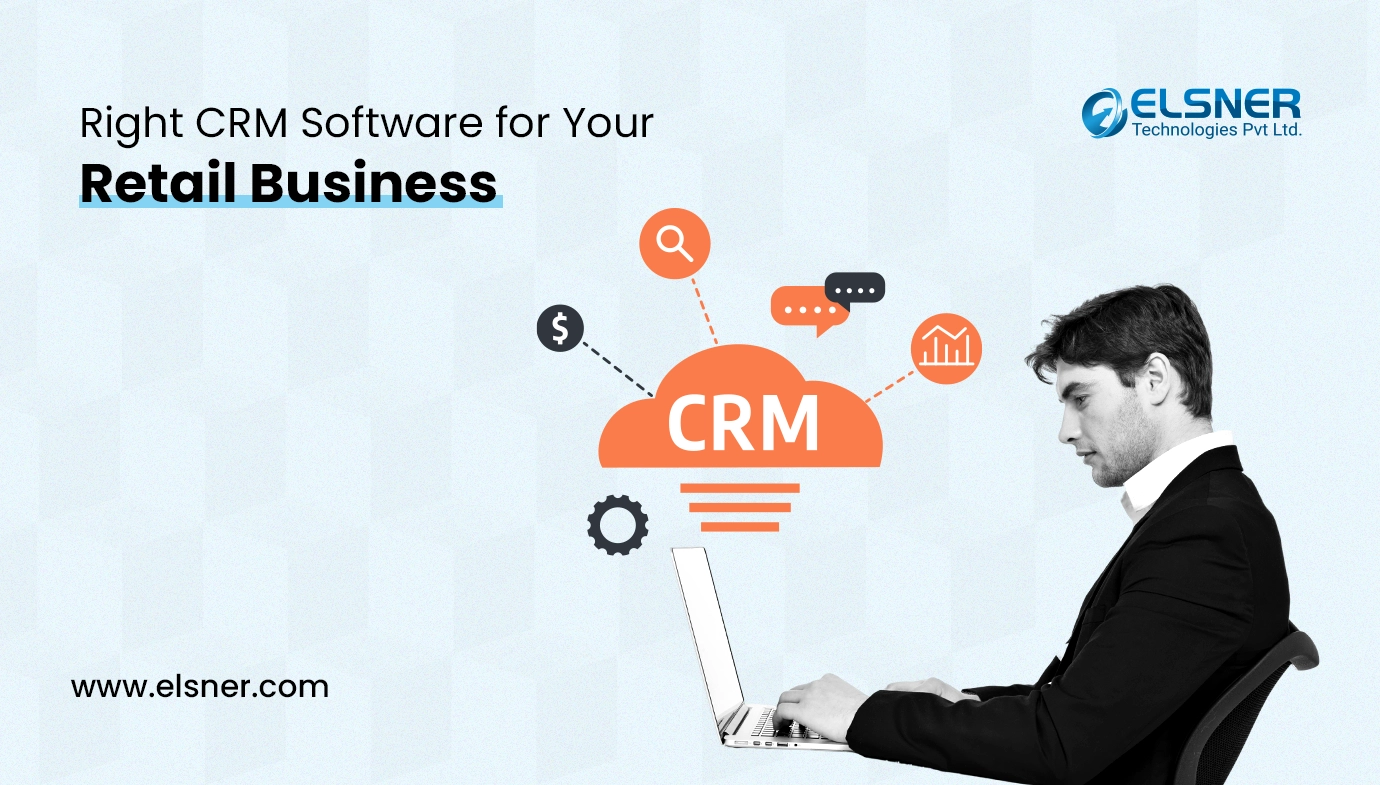- Why Are Businesses Choosing Salesforce to Zoho CRM Migration Now?
- 1. Is the cost gap really that big?
- 2. What about customization speed?
- 3. Are Zoho integrations better for growing teams?
- What Is the Step-by-Step Plan to Migrate Salesforce to Zoho?
- Stage 1 – What should you prepare before starting?
- Stage 2 – How do you clean Salesforce data for migration?
- Stage 3 – How do you map Salesforce fields to Zoho?
- Stage 4 – How do you execute the migration?
- What Mistakes Should You Avoid in Salesforce to Zoho CRM Migration?
- 1. Assuming workflows will work the same way
- 2. Skipping user training
- 3. Forgetting hidden integrations
- Is Hiring a Zoho Migration Partner Worth It?
- When Is the Best Time to Migrate from Salesforce to Zoho?
- FAQs About Salesforce to Zoho CRM Migration
- Q1: How long does migration take?
- Q2: Will I lose my historical data?
- Q3: Can Zoho handle complex workflows from Salesforce?
- Q4: Do I need to retrain my team?
- Q5: What support comes after migration?
Thinking about leaving Salesforce but worried the migration will be messy? You’re not alone — and the numbers prove it.
Salesforce might be the world’s most popular CRM, but it’s not the most practical for every business. In fact, a vast majority of Salesforce users say high cost is their biggest frustration, followed closely by slow customisation and complex integrations.
That’s why a growing wave of companies — from lean startups to global enterprises — are making the Salesforce to Zoho CRM migration. Zoho delivers the same core CRM capabilities at up to 70% lower cost, with faster setup, simpler automation, and AI tools included at no extra charge.
And 2025? It’s the perfect moment to switch. Economic pressure is pushing teams to trim tech spend, and Zoho’s ecosystem has matured to the point where migration is faster and smoother than ever.
In this guide, you’ll learn why companies switch, how to plan a smooth migration, the mistakes to avoid, and the ROI you can expect — so you can move without downtime, data loss, or team frustration.
Why Are Businesses Choosing Salesforce to Zoho CRM Migration Now?
Switching is rarely about one single reason. It is usually a combination of cost, control, and usability.
1. Is the cost gap really that big?
Yes. For many small to mid-sized companies, Salesforce costs keep climbing every year.
Licenses, add-ons, and storage fees stack up.Zoho’s pricing model is straightforward:
| CRM Feature | Salesforce | Zoho |
| Starting Price (per user/month) | $25 | $14 |
| AI Features | Paid Add-on | Included |
| Free Plan | No | Yes (up to 3 users) |
| Workflow Automation | Extra setup fees | Included |
| Annual Cost (50 users) | ~$15,000 | ~$8,400 |
A mid-size company can cut CRM costs by up to 65% after moving from Salesforce to Zoho.
2. What about customization speed?
In Salesforce, even small changes can feel like full-blown IT projects. Zoho lets your team:
- Build custom modules with drag-and-drop tools
- Adjust workflows in minutes
- Make changes without a developer on speed dial
One client told us, “We stopped waiting two weeks for a change. Now, we do it in 20 minutes.”
3. Are Zoho integrations better for growing teams?
Salesforce has thousands of apps, but connecting them often means long projects and extra costs.
Zoho has 40+ native apps that work together instantly, plus open APIs for custom needs. For example — a marketing agency we worked with linked Zoho CRM, Zoho Books, and Zoho Campaigns in under two days.
What Is the Step-by-Step Plan to Migrate Salesforce to Zoho?
The migration is not just “moving data.” It is a four-stage process.
Stage 1 – What should you prepare before starting?
Before any migration, you need a clear map of what exists in Salesforce:
- List all custom fields and objects
- Note every workflow and automation rule
- Identify integrations and their purpose
- Record user roles and access levels
This is also the stage to choose a Zoho migration partner. A team like ours spots risks early — saving weeks later, especially for complex projects like a Salesforce to Zoho migration.
Stage 2 – How do you clean Salesforce data for migration?
Old CRMs are full of junk. Duplicates, test records, incomplete contacts — they all eat space.
Before moving:
- Delete or merge duplicates
- Standardise formats (phone, email, addresses)
- Verify and update active contacts
- Backup your database
This “clean slate” approach prevents garbage from following you to Zoho.
Stage 3 – How do you map Salesforce fields to Zoho?
Not every field in Salesforce has a direct Zoho equivalent.
- Standard fields map easily
- Custom fields may need rebuilding
- Relationships between data must be maintained
- Calculated fields may require new formulas in Zoho
A small mapping mistake here can cause hours of manual fixes later.
Stage 4 – How do you execute the migration?
Never migrate everything in one go.
- Start with a sandbox test
- Transfer in batches (e.g., contacts first, then deals)
- Migrate during low-activity hours
- Keep all stakeholders updated
A phased approach means if something breaks, it is easier to fix.
What Mistakes Should You Avoid in Salesforce to Zoho CRM Migration?
Even experienced teams make these three common errors.
1. Assuming workflows will work the same way
Salesforce automation does not copy over as-is. Rebuild them using Zoho Blueprint and test with real scenarios.
2. Skipping user training
A CRM is only as good as its users. Train your team before going live. Focus on the tasks they do daily — not every single feature.
3. Forgetting hidden integrations
Your CRM may connect to more tools than you realise:
- Email marketing tools
- Payment gateways
- Support ticket systems
- Accounting software
Audit integrations early so nothing breaks post-migration.
Is Hiring a Zoho Migration Partner Worth It?
Doing it yourself might sound cost-effective — until you hit unexpected data issues, broken workflows, or downtime that slows the entire business.
A professional Zoho migration partner can:
- Prevent costly data loss
- Shorten migration timelines
- Optimise workflows during the switch
- Provide ongoing post-migration support
Example scenario:Imagine a logistics company with:
- 50,000+ customer records
- Custom shipment tracking modules
- Multiple accounting integrations
With a migration partner, they could achieve:
- Migration completed in 8 weeks
- 65% reduction in CRM costs
- Report generation time cut from hours to minutes
- 40% faster customer response times
The right partner offering best-in-class Zoho development services doesn’t just move your data — they move your business forward.
When Is the Best Time to Migrate from Salesforce to Zoho?
2025 is a sweet spot.
Many companies are already restructuring their tech stack after shifts in remote work, AI adoption, and digital-first sales strategies.
Switching now means you start the year with a faster, cheaper, and more flexible CRM.
Ready to Switch?
If you are planning a Salesforce to Zoho CRM migration, the key is preparation.
Get your data ready, map your fields, test in stages — and if you want zero surprises, work with a certified Zoho partner.
We help companies move faster, save money, and unlock more CRM value in less time.
Contact us today to start your migration with confidence.
FAQs About Salesforce to Zoho CRM Migration
Q1: How long does migration take?
Simple setups: 2–4 weeks. Complex systems with customisations: 6–12 weeks.
Q2: Will I lose my historical data?
Not if planned well. Experienced teams ensure all critical history is preserved.
Q3: Can Zoho handle complex workflows from Salesforce?
Yes, but you may need to rebuild them for Zoho’s automation tools.
Q4: Do I need to retrain my team?
Yes, but Zoho’s interface is intuitive. Training is shorter and easier than Salesforce onboarding.
Q5: What support comes after migration?
Good partners provide ongoing troubleshooting, new feature setup, and process improvements.

About Author
Pankaj Sakariya - Delivery Manager
Pankaj is a results-driven professional with a track record of successfully managing high-impact projects. His ability to balance client expectations with operational excellence makes him an invaluable asset. Pankaj is committed to ensuring smooth delivery and exceeding client expectations, with a strong focus on quality and team collaboration.




